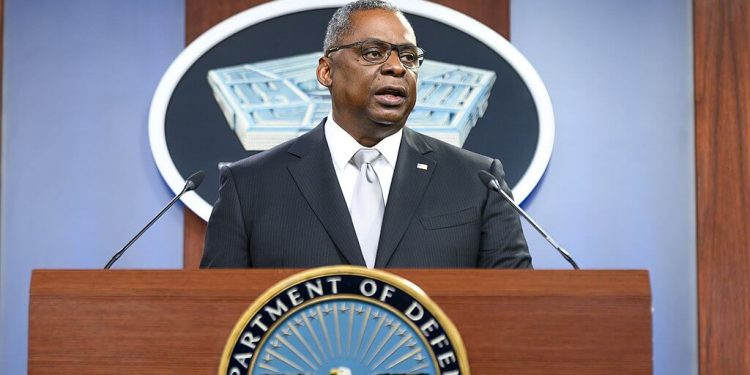Lloyd Austin, the United States Defense Secretary, has been discharged from Walter Reed National Military Medical Center after a two-week stay due to complications following prostate cancer surgery. The 70-year-old secretary’s condition necessitated hospitalization twice, with his second admission on January 1 leading to intensive care due to an infection.
Austin underwent prostate cancer surgery on December 22. However, complications from an infection, particularly ongoing leg pain, extended his hospital stay for physical therapy and further treatment.
On Monday, Austin was discharged and is expected to continue his duties from home as he recovers, according to a Pentagon statement. This development follows a period of concern and review within the administration and the Department of Defense.
Significantly, Austin’s health issues and hospitalization were not immediately disclosed to senior administration officials, including President Joe Biden. The Defense Secretary’s cancer diagnosis and subsequent hospitalization were kept confidential until January 4 and January 9, respectively.
President Biden, addressing the situation, acknowledged that Austin’s decision to withhold information about his hospitalization was a lapse in judgment. However, he affirmed his continued confidence in Austin’s capabilities.
The lack of transparency regarding Austin’s health prompted reviews within the administration and the Department of Defense regarding procedures for notifying the White House in similar circumstances. This is to ensure continuity and the transfer of decision-making authorities if needed.
Austin’s decision to keep his health issues private drew criticism from various quarters, including members of Congress from both political parties. Representative Mike Rogers, a Republican from Alabama and chair of the House Armed Services Committee, has initiated a formal inquiry into the matter.
Despite calls for his resignation from some, including former President Donald Trump, the Democrat-led White House has expressed its support for Austin, confirming that his position remains secure.
During his hospitalization, Austin remained actively involved in military operations. He managed communications with senior military leaders and participated in White House meetings via secure video links, even overseeing military strikes on the Houthis in Yemen from his hospital bed.



























